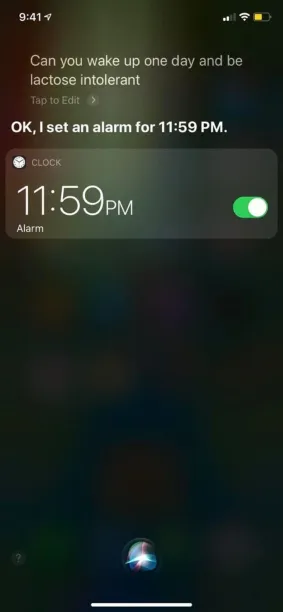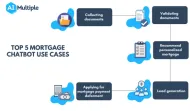Top Use Cases & Benefits of Emotional Chatbots in 2024
Chatbots are software programs designed to mimic a digitized conversation with a human being through text or speech. Today, they are used in smartphones, smart home appliances, healthcare, B2B transactions, governmental entities, banking, retail, and customer support services.
In the recent years of development, although regular chatbots have improved in efficiency and functionality, developers still have not been able to develop a chatbot that can fully and seamlessly carry out a conversation with a human.
But there has been a progression. And the emotional chatbots are an instantiation of this improvement.
In this article, we will examine what emotional chatbots are, and explain how they could be used as a stand-in HR representative, as your psychologist, and/or as a customer representative. We will then close by discussing some of their challenges.
What are emotional chatbots?
Whereas conversations with a “regular” chatbot have a professional tone and are conducted with the aim of problem-solving, talking with emotional chatbots should resemble the feeling of talking to a friend.
The technology behind emotional chatbots (natural language understanding (NLU)) strives to make them understand the user’s feelings and emotions, and to then offer applicable advice or course of action.
Do chatbots have emotions?
Emotional chatbots, being the machines that they are, do not have emotions.
Nonetheless, the developer’s goal is to try and program them in a way that would enable them to mimic human emotions.
“For example, the technically correct answer to ’May I use the bathroom?’ is ‘Yes’, but the response you are looking for when asking that question is ‘Of course, it’s over there!”
Sciensio CEO, Chuck Elias
Emotional chatbots and mental health
Arguably, the primary aim of chatbots is to make the user feel heard. And therein lies the potential they have to address mental health issues.
ELIZA and Woebot are examples of chatbots that provide mental healthcare. Assuming that the data privacy of the users is secured, encrypted emotional chatbots can be trusted companions. Users could divulge their personal problems, stories, feelings, or psychological symptoms they have been experiencing.
Moreover, what makes chatbots a great tool for addressing mental health issues is the lack of stigma. Robots do not judge, and hopefully, will not exploit your data either.
Are emotional chatbots replacing mental healthcare professionals?
The technology is not yet mature enough to safely allow for the disposition of professionals with chatbots. At the basic level, a chatbot like Replika should just be a companion that listens and talks to you.
For professional use; however, the current best implementation would be healthcare professionals complementing their face-to-face (or monitor-to-monitor) interactions with patients with emotional chatbots. This will help them increase their outreach to patients.
In addition, no longer would they have to conduct a preliminary session to learn more about a patient’s backstory. All that data would have previously been recorded by the chatbots and be available for review.
Advice for mental health professionals: Invest in emotional chatbots for your websites to increase your outreach to patients and reduce your workloads.
How are emotional chatbots used in the workplace?
Emotional chatbots are already being used in office environments to deal with delicate issues that would require tact and finesse.
“Spot” is a chatbot that allows workers to anonymously report “inappropriate moments at work,” bypassing the need to talk to an associate. The process involves the chatbot asking open-ended questions to gain insights, which can then be shared with the authorities in potential investigations when needed.
Another emotional chatbot, Loris, aims to listen to employees’ concerns, and then coach them on how to navigate the challenge, be it an angry customer, a sensitive co-worker, or a contentious course of action.
These workplace-oriented emotional chatbots could improve the efficiency of HR workflows by streamlining communication and offering a safe space for employees to share their concerns without worrying about prejudices.
Advice for HR leaders: Secured emotional chatbots that would take over rudimentary tasks to improve the efficiency of your department
Why are emotional chatbots important in business?
Emotional chatbots, moreover, are capable of increasing a company’s amount of sales because they allow for:
- Better PR: An emotional chatbot able to effectively communicate with a concerned customer and exhibit empathy will inspire loyalty in a customer. This, in return, could lead to a sustained relationship, positive online reviews, and referrals to other customers. Thus, emotional chatbots can enhance your conversational commerce strategy.
- Streamlined customer service: It’s been estimated that chatbots could save businesses and consumers over 2.5 billion customer service hours by 2023. Possessing a tool that allows for reaching a quick resolution will put a business at an advantage, especially if quick problem solving is a must for the next potential customer.
- Storing customer sentiment: Emotional chatbots can be thought of as a suggestion box. The management can go over the anonymous transcripts to get a clearer image of its reflection in the public’s eye.
Advice to sales managers: Adopt chatbots as a constantly available customer representative to deal with complaints, suggestions, and other issues customers might have.
What are emotional chatbots’ challenges?
Chatbots could suffer from a lack of understanding and of being vulnerable to cyber attacks.
- Level of understanding refers to the proficiency of the chatbot to understand what the user is saying and to offer a relevant response.
- Advice to chatbot developers: Chatbots should have the functionality of connecting the user to a live agent once it gets confused or incapable of carrying out a task.

- Data security is, perhaps, more a threat in emotional chatbots than regular ones, because users might divulge more of their private information with the former than the latter.
- Advice for chatbot developers: Use proper security protocols to protect users’ data which could beprone to cyberattacks.
For more on chatbots
- If you want to learn more about recruiting chatbots you can read our In-Depth Guide Into Recruiting Chatbots article.
- To learn the difference between chatbots and conversational AI, you can read our A Comparison of Chatbots vs. Conversational AI article.
- To find chatbots’ use studies for finance, you can check our Best 8 Chatbot Use Cases & Applications in Finance article.
- And to learn more on building your own chatbot, you can read our How to Build a Chatbot: Components & Architecture article.
If you believe your business will benefit from a conversational AI or chatbot solution, feel free to check our data-driven lists of vendors for:
And we can guide you choose the right solution and vendor:

Cem has been the principal analyst at AIMultiple since 2017. AIMultiple informs hundreds of thousands of businesses (as per similarWeb) including 60% of Fortune 500 every month.
Cem's work has been cited by leading global publications including Business Insider, Forbes, Washington Post, global firms like Deloitte, HPE, NGOs like World Economic Forum and supranational organizations like European Commission. You can see more reputable companies and media that referenced AIMultiple.
Throughout his career, Cem served as a tech consultant, tech buyer and tech entrepreneur. He advised businesses on their enterprise software, automation, cloud, AI / ML and other technology related decisions at McKinsey & Company and Altman Solon for more than a decade. He also published a McKinsey report on digitalization.
He led technology strategy and procurement of a telco while reporting to the CEO. He has also led commercial growth of deep tech company Hypatos that reached a 7 digit annual recurring revenue and a 9 digit valuation from 0 within 2 years. Cem's work in Hypatos was covered by leading technology publications like TechCrunch and Business Insider.
Cem regularly speaks at international technology conferences. He graduated from Bogazici University as a computer engineer and holds an MBA from Columbia Business School.
To stay up-to-date on B2B tech & accelerate your enterprise:
Follow on
![LaMDA Google's Language Model: Could It Be Sentient? [2024]](https://research.aimultiple.com/wp-content/uploads/2021/06/lamda-190x95.png.webp)
Comments
Your email address will not be published. All fields are required.